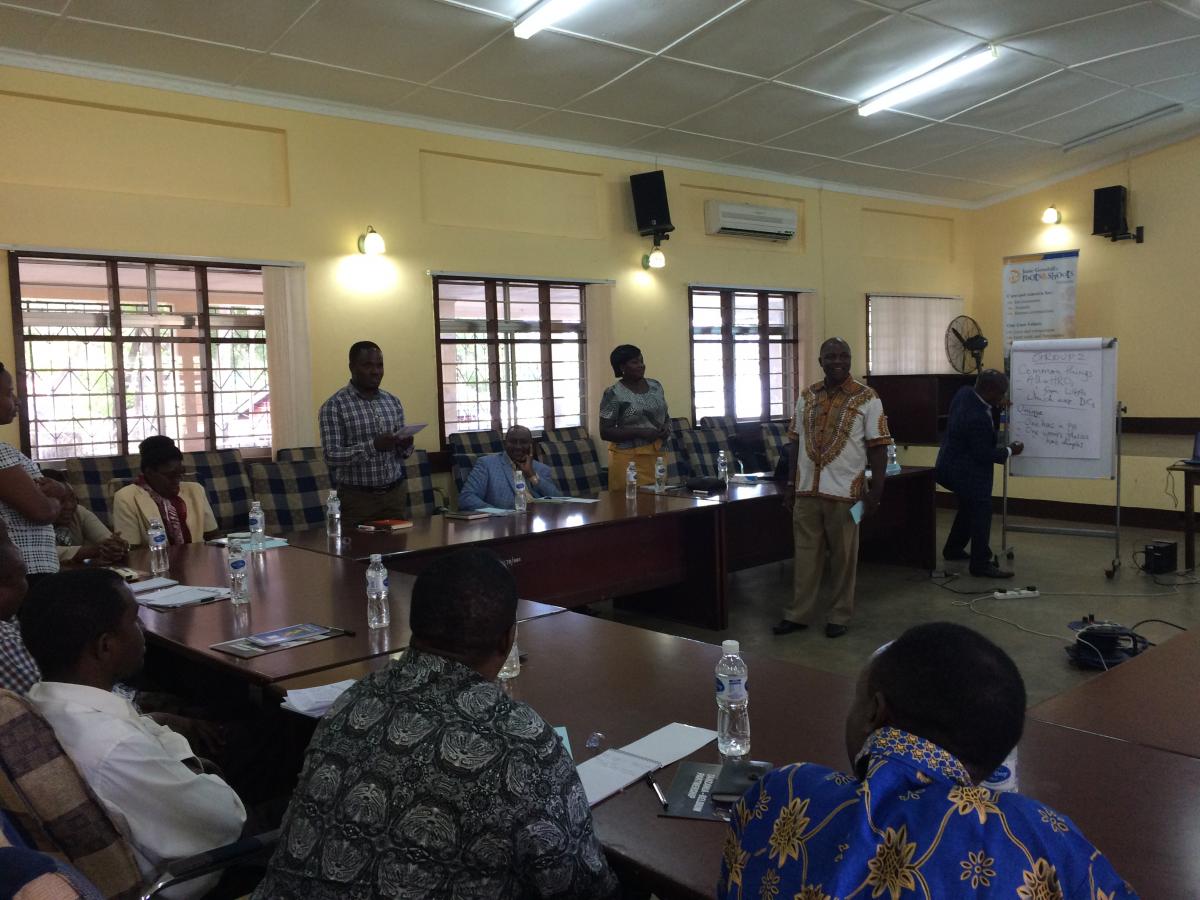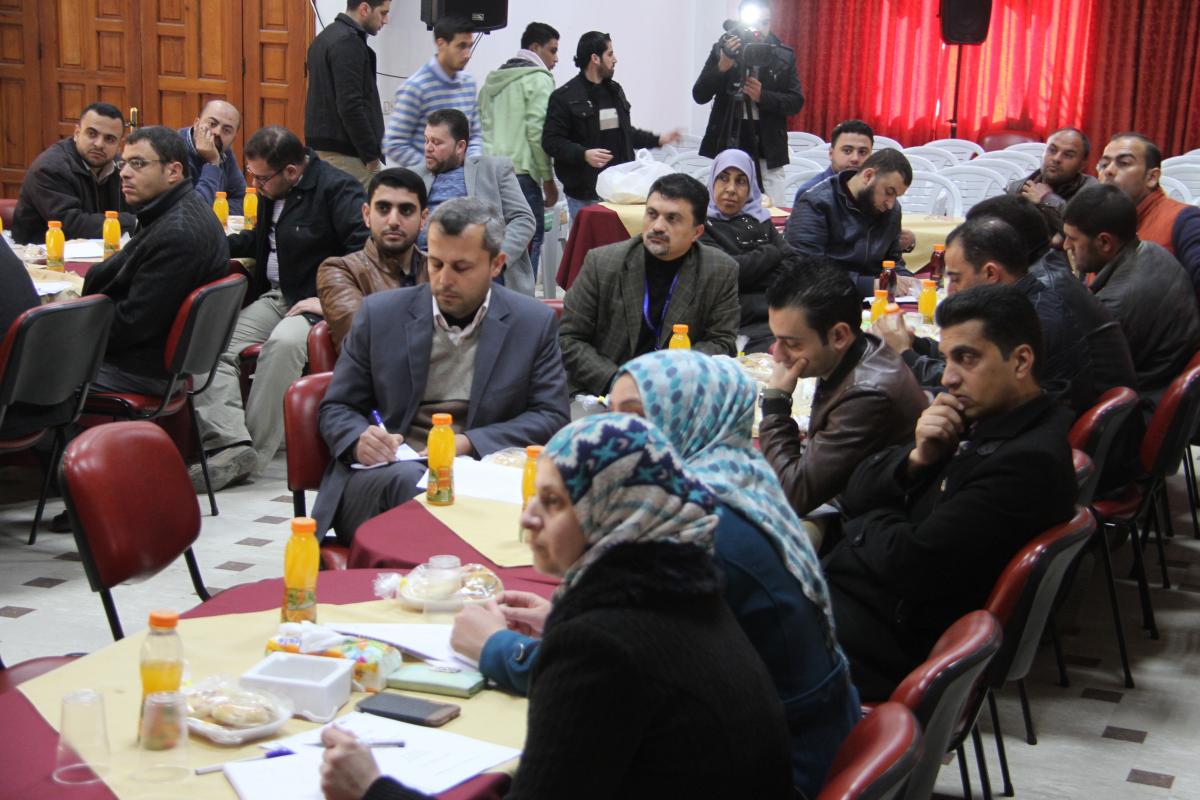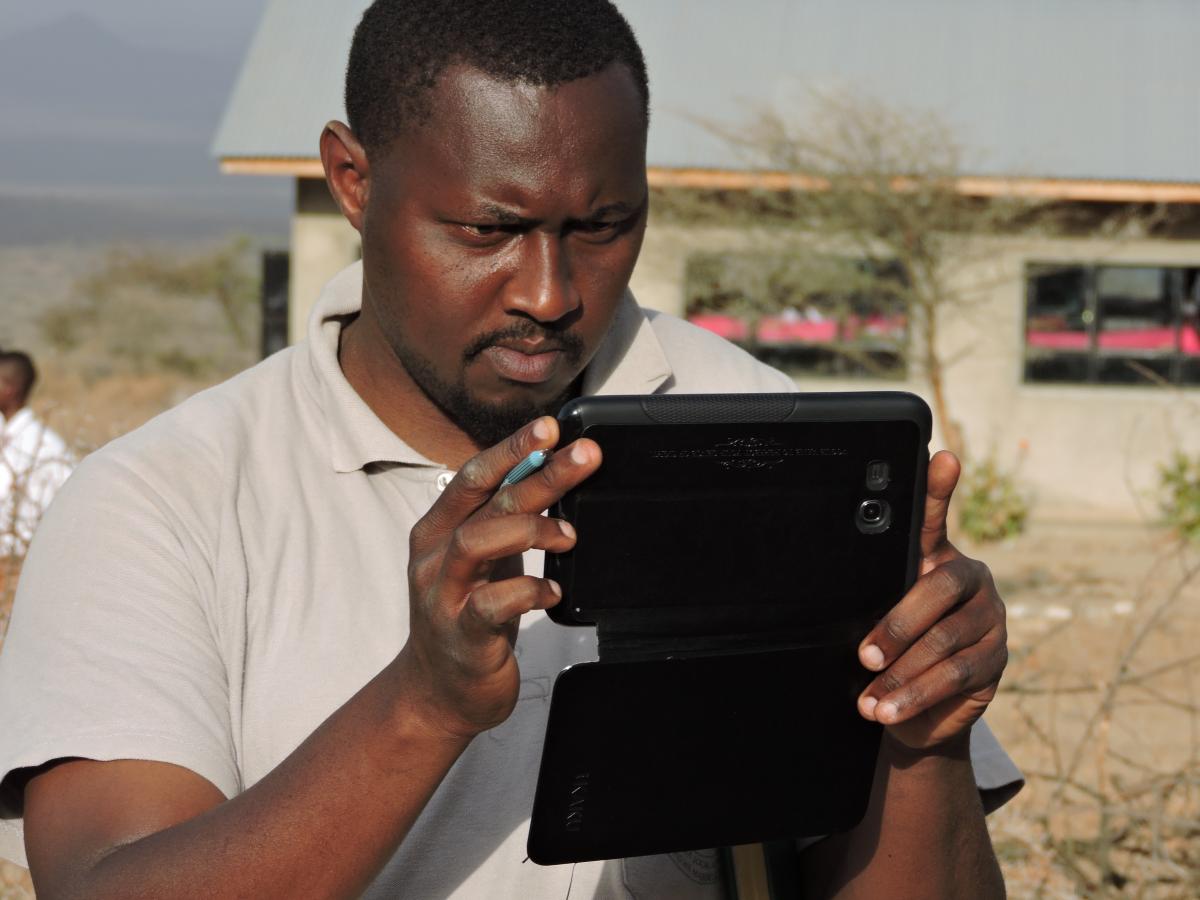Search
Viewing 2295 to 2310 of 2520 news
-

Introducing result-based financing in the public health sector
Thea MATHUES | 30/01/2017
To bring Uganda one step closer to universal healthcare coverage a new system of result-based financing is being introduced. This system looks at results instead of inputs. Hospitals and health centers that perform well will receive financial support to be spent with more autonomy and according to local needs. For many public health facilities in the Rwenzori region of Uganda this makes a big difference. Find out more through the video.
-
Lessons learned workshop
Jennifer SWERTVAEGHER | 26/01/2017
The Scholarship Programme is coming to an end in April 2017. After 4 years of implementation, there are a lot of experiences to collect and to learn from. To jointly analyse what lessons have been learned during the past years, 3 stakeholders workshops are being organised to bring together all people who have been involved in the project. In Dar es Salaam, in Kigoma, and in Morogoro, stakeholders are given the chance to voice their opinions on what went well, what didn’t go well, and why. These experiences are of great value to repeat best practices, and avoid past mistakes when BTC engages in any future capacity building efforts in Tanzania.
-
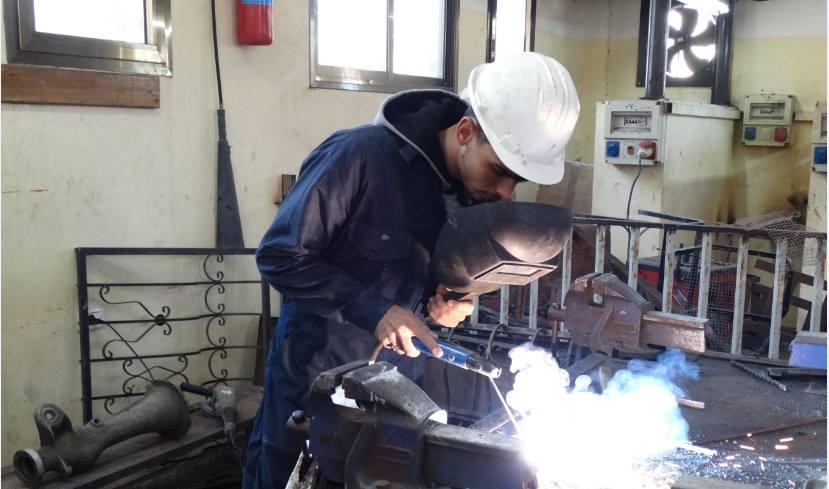
Bilal - a blacksmith in the making
Eva MORRE | 26/01/2017
Bilal (20) lives in Rafah, in the southern part of the Gaza Strip. He comes from a wealthy family, but just as thousands of other young men from his generation, he couldn’t find a job. When he was not admitted at university, his uncle offered him to work in his blacksmith workshop. The work was tiresome, but Bilal was happy to learn a skill and earn some money. Unfortunately, his uncle died soon after Bilal started to work for him, which left him without anyone able to teach him the craft of becoming a blacksmith. Bilal decided to enroll at the Rafah Vocational Training Center (VTC). This center is part of the Work Based Learning (WBL) initiatives supported by the Belgian Development Cooperation. This means that students combine theoretical classes at the center with an internship in the private sector. “The training enabled me to master all the skills necessary for becoming a blacksmith, and the learning process was much faster thanks to the training in the private sector. I was very lucky to learn from specialists and experts with a long experience in the field. The fact that I enrolled in the VTC in Rafah was among the best decisions I have ever made.” Bilal has impressed his teachers and colleagues with his creativity and hard work. Throughout his studies, he got information from specialists and experts with long experience in the field. He is convinced that his decision to attend a vocational training center and the encouragement of his parents were among the best things that happened in his life. While enrolled in the VTC, Bilal helped out his neighbors and acquaintances with some small jobs at home to gather some extra money. With the help of this pocket money, he was able to start his own blacksmith workshop soon after graduating from the VTC in Rafah. So far, his workshop is very small, and the number of tasks he can execute is limited, but his dream is to be able to expand his workshop and buy more sophisticated equipment for his blacksmith workshop.
-
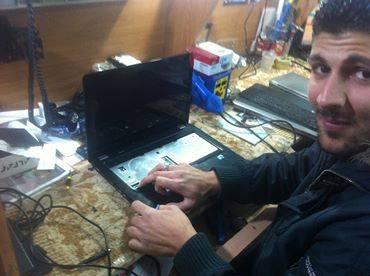
Why a fresh graduate refused a job
Eva MORRE | 26/01/2017
Ala Abu Ayesh is 23 years old. He has been a Work Based Learning (WBL) trainee in PTC Al Aroub, where he studied Computer sciences. The total duration of his training was 7 months, out of which he spent 4 months as a trainee in a private company. In the private company he learned how to repair smart devices like smartphones and laptops and how to install computer software as well as security camera systems. His everyday tasks included installing operating systems and building computer networks, repairing hardware defects in computers and smart phones and installing camera systems at private homes and in companies. In short, he was very happy with the variety of tasks that was given to him during his internship. “Thanks to the training period in the private company, I learned how to repair laptops and smartphones. It also thought me some practical aspects like the knowledge of where to buy spare parts for all kinds of electrical devices.” His internship went so well that the company where he was trained during the WBL course proposed him a job at the end of his training which he refused. He preferred to open his own company in his hometown, north of Hebron, right after graduation. His company is still in the start-up phase, so for now he works from home, but he is hoping to rent an office space in the near future to make his company more professional. Once it is big enough, he would be willing to train WBL trainees in his own company, as his own internship made him realize the importance of training young people inside a private company.
-
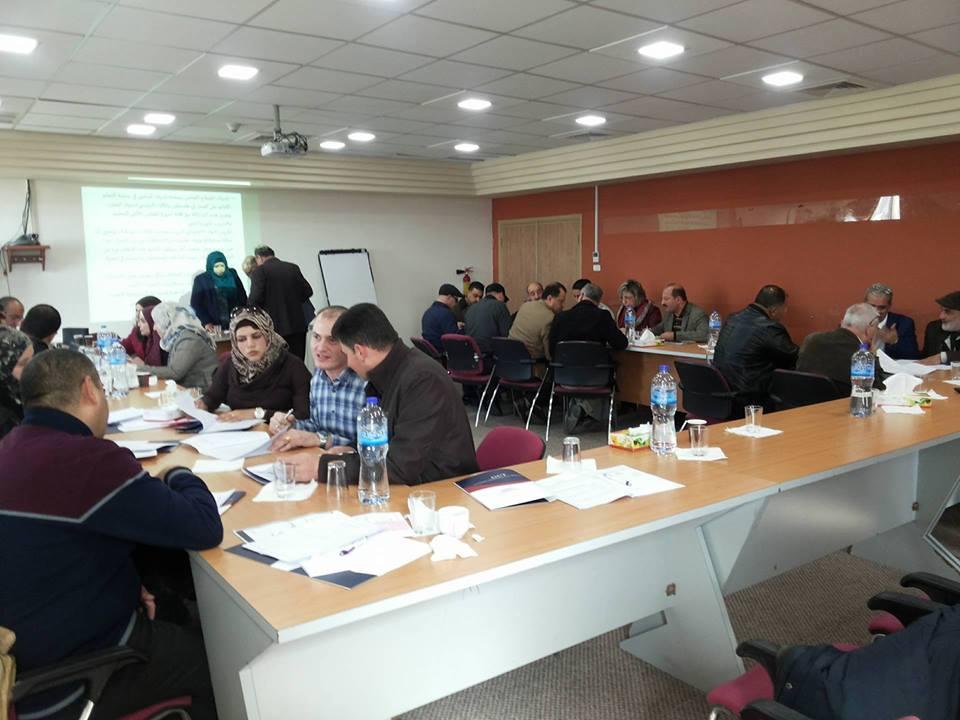
TVET stakeholders discuss draft proposal on Work-Based Learning (WBL) Legislation
Eva MORRE | 23/01/2017
More and more Palestinian students from technical and vocational education and training (TVET) follow part of their training in the private sector. In recent years this practice is rapidly gaining in popularity, as this hands-on training period provides them with skills that are more relevant for the private sector than when they are only trained inside their training centre or school and hence increases significantly the chances of TVET graduates to find a job.However, these traineeships in the private sector or work-based learning (WBL) pose new legal challenges: What are the rights of the trainees? Who is responsible in case of an accident in the workplace? Should the trainee sign an employment contract? Should enterprises who employ trainees get any incentives like a tax reduction? Should trainees be paid or receive pocket money? In order to tackle these and other related legal issues, the Belgian Development Agency hired a legal company to support the development of a legal framework for work-based learning practices. This research was done in close cooperation with the TVET stakeholders and the International Labor Organization (ILO). On the 9th of January 2017, a final workshop was held to present the results of the legal study and to discuss the legislative framework for work-based learning in Palestine with the concerned stakeholders at the central and local level. Representatives from the Ministry of Education and Higher Education, the Ministry of Labour and the Private Sector as well as principals of TVET institutions and company owners debated jointly the draft proposal and formulated their remarks and propositions. Detailed discussion in the workshop resulted in some observations which will be integrated in the final report of the legal expert. Among others: Give people with special needs priority in legal matters Agree on a common definition of a traineeForesee compensation for unfair dismissal of the traineeIdentify the party in charge of the trainee’s insurance The adapted proposal for a WBL legal framework will be presented to both ministries for further discussion and final adoption by the Palestinian Authority.
-
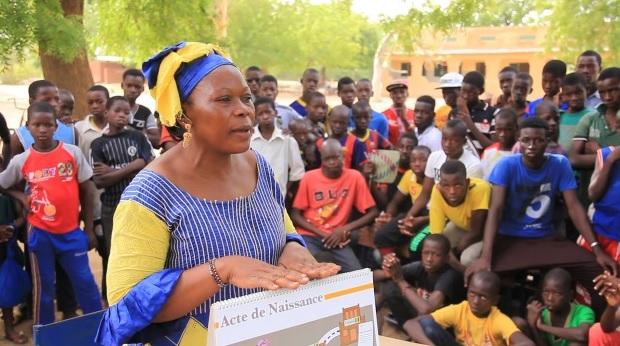
Le système de gestion de l’état civil renforcé au Mali
Els DEHANTSCHUTTER | 20/01/2017
Droit à l'éducation, à la santé, à l'héritage, plein exercice du droit de vote, ou encore acquisition de la personnalité juridique, sont conditionnés par l'obtention des actes de naissance, de mariage et de décès. Dans les villages du Mali, l'accès difficile à ces pièces d'état civil constitue à terme une réelle entrave à l'exercice de la citoyenneté formelle. Pour remédier à cette situation, la Direction nationale de l'état civil a expérimenté une approche novatrice à travers les Plans d'amélioration des services de l'état civil (PASEC), avec le soutien du Projet d'appui à l'état civil dans la région de Koulikoro (PAEC). Les plans d'amélioration définissent dans le temps et dans l'espace communal les opérations à réaliser en vue d'améliorer l'accès et la qualité du service d'état civil. Suite à l'élaboration de ces plans, les communes ont doté en matériels les villages disposant de centres de déclaration et ont organisé des formations sur la tenue de registres de déclaration et l'utilité de l'enregistrement des faits d'état civil.Dramane Coulibaly, 23 ans, est l'agent de déclaration du village de Tiendobougou. Scolarisé jusqu'à l'âge de 14 ans, il est ensuite devenu cultivateur. Il y a deux ans, Tiendobougou ne disposait ni d'un agent de déclaration capable de lire et écrire en français, ni d'un centre de déclaration. Seul lettré disponible, il a alors été choisi par le chef de village : « C'est de façon bénévole, je ne reçois rien. Mais comme on m'a accordé la confiance, je m'adonne vraiment à ce travail. On m'a choisi parmi tout le village pour le faire. Cette année, il y a eu des changements. Avant, tous les actes d'état civil se faisaient dans ma chambre et je les gardais dans mon sac. Il n'y avait pas de jour fixe. Ça dépendait de ma disponibilité... Puis, tout le village s'est cotisé pour construire un centre. Maintenant, il y a un lieu fixe où les papiers sont déposés. Pendant deux jours par semaine, du début de la journée jusqu'à la fin, je reste là. » En juin dernier, Dramane a suivi un stage de formation avec une vingtaine d'autres relais communautaires de sa commune. L'objectif du stage, appuyé par le PAEC, était d'apprendre aux participants à informer leur propre communauté sur l'importance des actes d'état civil et sur les procédures à suivre pour les obtenir. L'outil pédagogique privilégié était une boîte à images de 14 planches que les participants étaient invités à manipuler lors de différents jeux de rôles. Quelques semaines plus tard, c'est dans son village que Dramane présentait la boîte à images, sous le regard intéressé de ses voisins. L'une des conditions premières pour asseoir un système d'état civil pleinement fonctionnel, statistiquement utile et adapté au contexte de décentralisation territoriale reste son appropriation et sa fréquentation par les populations. Grâce à la mise en œuvre des Plans d'amélioration des services de l'état civil et à une communication de proximité, c'est l'accessibilité du service public de l'état civil qui se trouve grandement améliorée.Faits et chiffres · Financement : Mali, Belgique · Budget : 1.129.389 € · Depuis le début du PAEC, plus de 400 centres de déclaration et centres d'état civil ont été dotés en chaises, tables, armoires et matériel d'archivage. En deux ans, le taux de couverture géographique des centres d'état civil au regard des normes nationales est passé de 39 % à 69 % dans la région de Koulikoro. Depuis avril 2015, 20 stages ont été dispensés dans 20 communes pour un total de 400 relais communautaires formés à l'utilisation de la boîte à images. Cette activité devrait avoir des effets positifs sur les taux d'enregistrement des actes d'état civil, inférieurs à 35 % en début de projet.Civil registry management system strengthened in Mali Birth, marriage and death certificates are required to claim the right to education, health, inheritance or voting or to acquire legal status. In the villages of Mali, the poor access to such civil registry certificates is in the long run a genuine impediment to formal citizenship. To remedy that situation, with the assistance of the Support project to civil registry services in the Koulikoro region (PAEC), the National Public Service Directorate tested an innovative approach through Civil Registry Service Delivery Improvement Plans (PASEC). The improvement plans define when and where in the commune actions must be taken to improve access to and quality of civil registry service delivery. Following the elaboration of these plans, the communes have provided the villages that have registry offices with equipment and have organised training on registry management and on the need for registering civil state deeds.Dramane Coulibaly, aged 23, is the civil registry officer of the village of Tiendobougou. He went to school until he was 14 and then started working as a farmer. Until two years ago, Tiendobougou had no civil registry officer who could read and write French and there was no registry office. Since he was the only literate person, he was chosen by the village head: "I do this as a volunteer; I do not get anything for it. But since the villagers put their trust in me, I really do my utmost best. I was chosen among all villagers to do this. (...). This year, changes have been made. Before, all civil registry deeds were drafted in my room and I kept them in my bag. There was no fixed day. It all depended on my availability. (...) Then, the whole village contributed to build a centre. Now, there is a place to store the paperwork. And I stay there two days per week from the beginning until the end of the day." Last June, Dramane did a training internship with some twenty other community workers of his commune. The goal of the internship supported by PAEC was to teach participants how to inform their own community about the importance of civil registry certificates and about the procedures needed to obtain them. The learning materials consisted of an image box of 14 plates used by participants during various role plays. A few weeks later Dramane presented the image box in his own village to his interested neighbours. One of the first conditions to install a fully functioning civil registry system, which is statistically useful and adapted to the decentralisation policy in place, is that the population takes on ownership of the system and actually uses it. Thanks to the implementation of the Civil Registry Service Delivery Improvement Plans and to local communication, access to civil registry services has significantly improved.Facts and Figures · Funding: Mali, Belgium · Budget: 1,129,389 euros · Since PAEC has started, more than 400 registry offices and civil registry centres have been supplied with chairs, tables, cupboards and archiving materials. In two years, the rate of coverage of the national standards Civil Registry offices went from 39% to 69% in the Koulikoro region.Since April 2015, 20 internships have been dispensed in 20 communes for a total of 400 community workers who were trained in using the image boxes. This activity should have positive effects on the rate of certificates registered, which was less than 35% at the beginning of the project.Efficiënter systeem voor de burgerlijke stand in Mali Het recht op onderwijs, gezondheidszorg, het recht om te kunnen erven, te mogen stemmen of een rechtspersoonlijkheid te verwerven ... dat alles is nauw gelinkt aan het bezitten van geboorte-, huwelijks- en overlijdensakten. In de Malinese dorpen speelt de moeilijke toegang tot akten van de burgerlijke stand de bevolking parten om op te treden als volwaardige burgers. Om die situatie recht te trekken heeft het Nationaal Directoraat voor de burgerlijke stand geëxperimenteerd met een innovatieve aanpak via Verbeterplannen voor de dienstverlening van de burgerlijke stand (PASEC). Dat deed ze met de steun van het Project ter ondersteuning van de burgerlijke stand in de regio Koulikoro (PAEC). De verbeterplannen bepalen waar en wanneer de gemeente actie moet ondernemen om de toegang tot en de werking van de burgerlijke stand te verbeteren. Zo hebben de gemeenten de dorpen die beschikken over aangiftecentra uitgerust met materiaal. Verder hebben ze opleidingen georganiseerd over het bijhouden van aangifteregisters en over het nut van het opstellen van officiële akten voor de bevolking. Dramane Coulibaly, 23 jaar, is aangifteambtenaar in het dorp Tiendobougou. Hij liep school tot zijn veertiende en ging daarna op het land werken. Tot twee jaar geleden was er geen aangifteambtenaar in Tiendobougou die Frans kon lezen en schrijven, en was er evenmin een aangiftecentrum. Dramane was de enige beschikbare geletterde en werd dan ook uitgekozen door het dorpshoofd: "Ik doe dit werk vrijwillig. Ik krijg er niets voor. Maar omdat de mensen mij vertrouwen, doe ik echt mijn best. Uit heel het dorp werd ik gekozen om dit werk te doen. Dit jaar waren er een aantal veranderingen. Vroeger werden alle akten van burgerlijke stand opgemaakt in mijn kamer en bewaarde ik ze in mijn tas. Er was geen vaste dag. Het hing ervan af wanneer ik beschikbaar was. Toen heeft het hele dorp bijeengelegd om een centrum te bouwen. Nu is er een vaste plaats waar alle papieren worden bewaard. Twee dagen per week blijf ik daar van 's morgens tot 's avonds." Afgelopen juni volgde Dramane een opleidingsstage samen met een twintigtal andere gemeenschapswerkers uit zijn gemeente. Die stage werd gesteund door PAEC. Doel was de deelnemers te leren hoe ze hun eigen gemeenschap kunnen informeren over het belang van akten van burgerlijke stand en over de procedures die ze moeten volgen. Het lesmateriaal bij uitstek was een prentendoos met 14 platen die de deelnemers konden gebruiken bij verschillende rollenspellen. Enkele weken later liet Dramane de nieuwsgierige dorpsbewoners van Tiendobougou kennismaken met die prentendoos. Een van de basisvoorwaarden voor een werkzaam systeem van burgerlijke stand – dat statistisch interessant materiaal oplevert en is aangepast aan het beleid van territoriale decentralisatie – is dat de bevolking erachter staat en er gebruik van maakt. Dankzij de verbeterplannen voor de dienstverlening van de burgerlijke stand en de lokale communicatie, is de dienst burgerlijke stand nu veel toegankelijker.Feiten en cijfers · Financiering: Mali, België · Budget: € 1.129.389 · Sinds het begin van PAEC werden meer dan 400 aangiftecentra en centra voor burgerlijke stand uitgerust met stoelen, tafels, kasten en archiveringsmateriaal. In twee jaar tijd is de geografische dekkingsgraad t.o.v. de nationale normen van centra voor burgerlijke stand in de regio Koulikoro gestegen van 39 % naar 69 %. Sinds april 2015 werden 20 stages gegeven in 20 gemeenten. Op die manier werden in totaal 400 gemeenschapswerkers opgeleid in het gebruik van de prentendozen. Dat zou een positieve weerslag moeten hebben op de registratiegraad van akten van burgerlijke stand. Die lag bij de start van het project onder de 35 %.
-
BTC launches call for proposals for CVET
Eva MORRE | 19/01/2017
On the 10th of January 2017, the Belgian Development Agency launched a call for proposals for the new Continuous Vocational Education and Training (CVET) Fund. CVET includes all forms of education or training after initial education or entry into working life. It is aimed at helping individuals to improve or update their knowledge and/or skills; acquire new skills for a career move or retraining or continue their personal or professional development. The call aims at two different target groups: People who are working in a TVET-related profession in the private sector and who need a skills’ update or upgradeUnemployed young people with prior training and who did not find a job and decided to change their career based on the labour market needs Two information sessions were held in both Gaza and West Bank to explain the concept of the CVET and the guidelines for applicants. Representatives from TVET Institutions (Vocational Centres, Industrial Schools and Technical colleges) as well as private sector and civil society organisations from various districts (Ramallah, Hebron, Nablus, Jerusalem and Gaza) participated in the workshops. The implementation of the selected CVET initiatives is expected to start in April 2017.
-
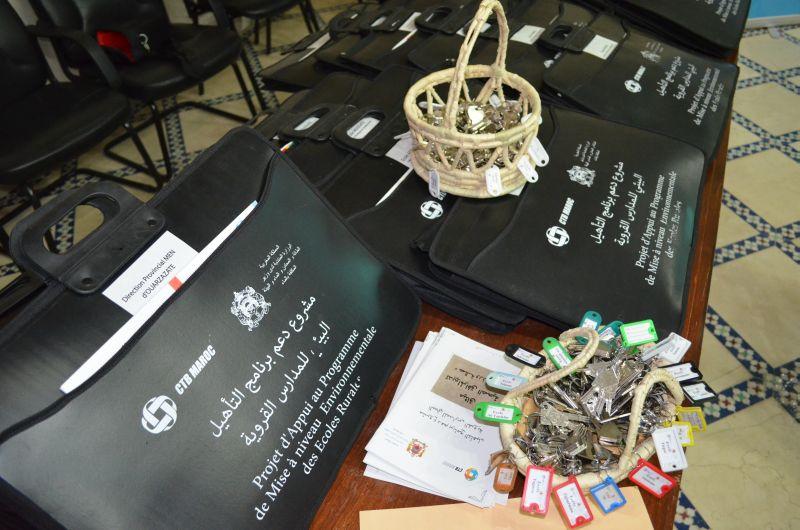
114 écoles rénovées, un accomplissement pour les écoliers du sud marocain
Meriem HILALI | 18/01/2017
Le projet d’Appui au Programme National de Mise à Niveau Environnementale des Ecoles Rurales a organisé, les 16 et 17 janvier dernier, la distribution de kits pédagogiques et la remise symbolique des clés des blocs sanitaires construits par le projet, dans 114 écoles rurales enclavées des provinces de Ouarzazate, Tinghir et Taroudant.
-

Proyecto del Lago IMAGES DRONE TITICACA LOGO PTP
Agar TAMAYO | 12/01/2017
El Proyecto del Lago tiene como objetivo "Contribuir a mejorar la gestión comunitaria del patrimonio cultural de la cuenca del Lago Titicaca boliviano y promover el desarrollo del turismo cultural comunitario".Proyecto del Lago
-

Proyecto del Lago y hallazgos obtenidos a la fecha
Agar TAMAYO | 12/01/2017
El ministro de Culturas y Turismo habla en el Programa Anoticiando de la RED ATB a nivel nacional acerca del Proyecto del Lago y sus características, además de algunos hallazgos obtenidos hasta la fecha.
-

Proyecto del Lago: ARUSKIPIRI
Agar TAMAYO | 12/01/2017
Se trata de un vídeo que narra en imágenes el proceso de Socialización del Proyecto del Lago, un proyecto arqueológico-turístico que busca contribuir a mejorar la gestión comunitaria del patrimonio cultural de la cuenca del Lago Titicaca boliviano y promover el desarrollo del turismo cultural comunitario. Esta socialización fue realizada en 13 municipios priorizados en el Proyecto del Lago, en este proceso se llegó a capacitar a alcaldes, concejales, directores de desarrollo humano, de cultura y turismo. Alrededor de 180 autoridades municipales fueron sensibilizados acerca del Proyecto del Lago y sus alcances. Asimismo se encuentra en plena conclusión la segunda etapa de socialización con autoridades originarias, representantes de emprendimientos de turismo comunitario y artesanal de los 13 municipios. La socialización se realizó en idioma aymara y español utilizando diferentes materiales de información como apoyo didáctico. Franz LaimeProyecto del Lago
-

Programme update: Maisha Bora video to raise awareness of pastoral livelihoods & food insecurity
Toon DRIESEN | 21/12/2016
Iles de Paix made an eye-catching video on the Maisha Bora programme. The video will be used to inform and sensitize school children in Belgium on pastoral livelihoods and the work of our Maisha Bora partners to improve food security in Northern Tanzania.
-
Focus on coordination: BTC introduces a mobile monitoring system in the Maisha Bora programme
Toon DRIESEN | 21/12/2016
Reginald Lyakurwa from Longido District taking pictures with the tablet during one of his coordination visits to the Maisha Bora programme activities. You can read the full article on: https://social.shorthand.com/MaishaBoraTZA/ngE04c6yrf/the-wows-and-woes-of-mande-technology In June 2016 BTC launched a mobile monitoring system based on the free and open source solutions offered by Kobo Toolbox. The tools allow BTC and their local government partners to collect monitoring data using an application on their tablets, aggregate all the data on the Kobo Toolbox server and export them directly to any of their preferred analysis tools: Excel, QGIS or Tableau Public. The first results look promising. Mathias Lardinois, programme coordinator explains: “We are collecting rich and reliable data, we limit the time spent on data collection and analysis, minimize data entry errors and we ensure a fast flow of information from the field to the office. Basically these tools help us to take better decisions based on reliable information from the field.” “Putting in place the technology is the relatively easy part. We are investing a lot of time in training our partners in the use of the tablets and making sure they can all keep up with the technology” says Toon Driesen, junior assistant for BTC . By setting up data collection campaigns together with their programme partners and sharing knowledge and experiences with organizations outside the Maisha Bora programme, BTC also contributes to a local community of practice. Mathias & Toon finally give some advice to other development actors who want to set-up their own M&E system: Think about an integrated ICT4D approach. Make sure you can integrate and preferable synchronize your M&E system with your other (existing) tools for e.g. communication and programme management.The success and adoption of your tools depend on your primary users. Invest sufficient time in training and include your partners and users in every step of the design and implementation process.Don’t get too focused on data. It’s not about the amount of data you collect, but the ability of your organization to take meaningful decisions based on reliable data. Don’t ignore the stories behind the figures. BTC’s efforts didn’t go unnoticed. On 28 February 2017 Mathias Lardinois is invited to represent Maisha Bora at the 2nd Aid & Development Africa Summit in Nairobi, Kenya in a panel discussion on mobile innovations to support community resilience. Find out more on the conference: http://africa.aidforum.org/ Some useful links: http://digitalprinciples.org/ : 9 principles that will guide you for integrating best practices in technology-enabled programmes http://www.kobotoolbox.org/ : create your free hosted account at Kobo Toolbox and start collecting data using mobile phones or tablets.
-
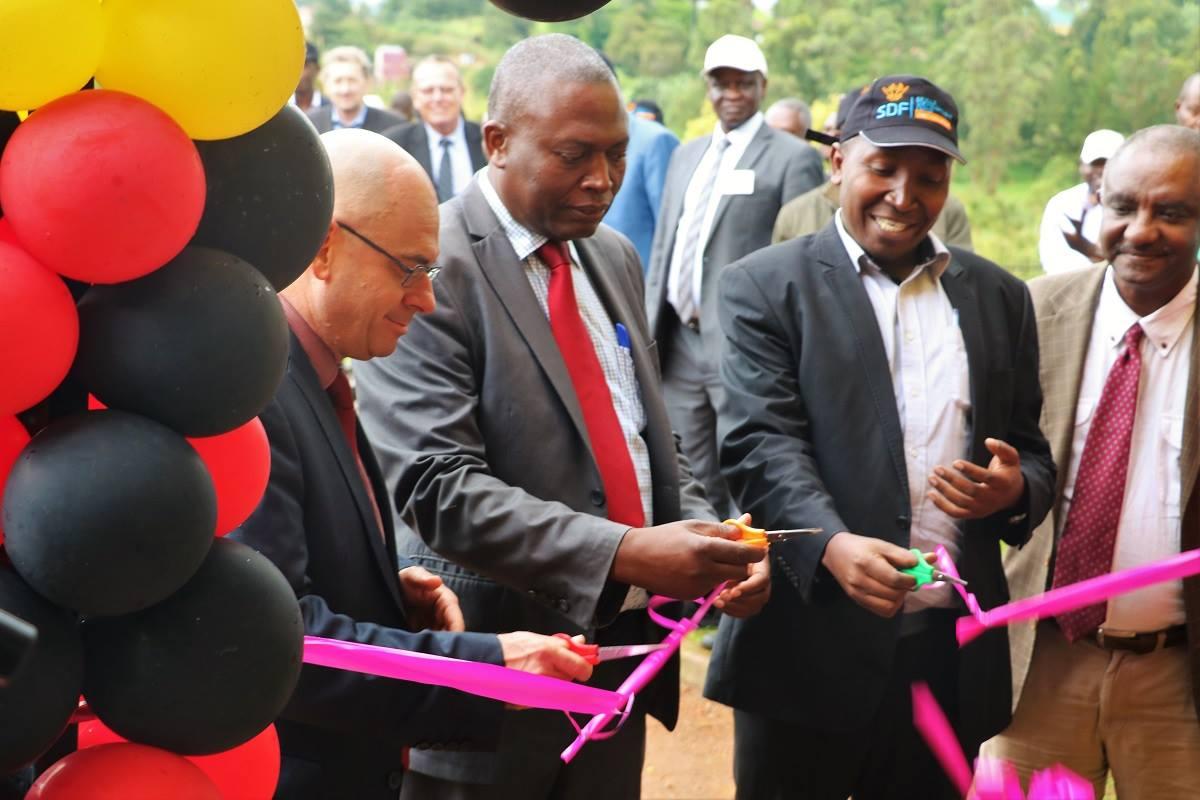
Launch of the regional health and education office in Fort Portal
Hanna DEKERK | 21/12/2016
On December 13th 2016 BTC Uganda officially launched the new Health and Education regional office in Fort Portal. BTC has been operating in the Rwenzori and Albertine region for years but since June 2016, a regional office has been established in Fort Portal for the Health and Education projects. The new office will improve access to the beneficiaries of these two departments, while increasing the collaboration with key stakeholders and local district leaders. In short, it will enhance the response and integration of local issues.Dr. Fedjo Galbert, International Technical Assistant at the BTC Uganda Health department kicked off the launch with some insights on their recent focal point: Results Based Financing. The aim of this approach is to make districts and health service providers more accountable by regularly verifying the quantity and quality of delivered health services, while at the same time reducing the patients bill. Jan Bijnens, the Education programme manager for BTC Uganda highlighted the importance of the new office for the implementation of the Support to Skilling Uganda (SSU) project. At the grassroots level, SSU focuses on improving the quality of training and qualification processes, while enhancing access to BTVET. The project can now collaborate more closely with local BTVET institutions, which increases its efficiency and effectiveness. Finally, Erwin De Wandel, Head of Development Cooperation for the Belgian Embassy, officially cut the ribbon at the door and concluded that “The opening of the regional project office is a logical step and a demonstration of the committed development support towards Uganda’s local development agenda.” He is convinced that the regional office in Fort Portal will evolve towards a center of reference for all development partners, especially all Belgian partners and NGOs, in view of exchanges of experiences and synergies of activities.
-
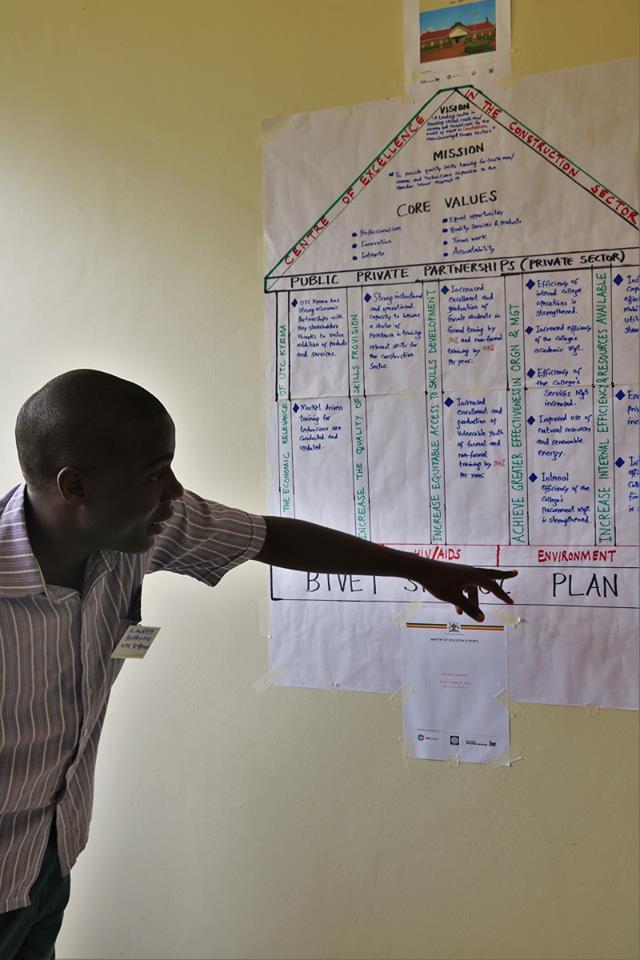
From the world of training to the world of work: Launch of the Skills Development Fund and the business plans of 5 partner institutions
Hanna DEKERK | 20/12/2016
On the 13th of December, the Support to Skilling Uganda (SSU) project piloted the Skills Development Fund (SDF) and launched the business plans of 5 partner institutions in the Albertine-Rwenzori region. At an event in Fort Portal, partners from the local and national level gathered to learn about the funding possibilities of the pilot SDF and to admire the newly edited business plans. Skills for competitivenessIn order to create awareness among the targeted applicants, the pilot SDF was officially presented to training providers and the private sector in the Albertine-Rwenzori region. Business Membership Organisations at regional level were targeted, as well as training providers that were reached during the mapping exercise. As the SDF expert, Christine Karungi, puts it “This launch marks the first step in the pilot SDF roll-out strategy for Albertine-Rwenzori.” By enhancing skills development, the pilot SDF aims to improve local productivity and competitiveness. Its goal is to stimulate bottom-up initiatives between training providers and the private sector through competitive calls for proposals. By linking BTVET institutions with private sector organisations, the fund will facilitate the transition from the world of training to the world of work. Options for financing of Skills Development will first be tested in Albertine-Rwenzori, and later replicated in West-Nile and Karamoja. At the launch, Robert Odok Oceng, Director of Higher Education of the Ministry of Education, requested eligible stakeholders “to take up this opportunity to design innovative and relevant skills development programs that will contribute to increased employability of the youth.” From the classroom to the workshop The event also launched the newly edited business plans of 5 partner training providers in Albertine-Rwenzori, which were proudly presented to partner organisations and economic actors in the region. The SSU project supports St. Joseph Technical Institute in Fort Portal, St. Simon Peter Vocational Training Centre & Millennium Business School in Hoima; Kasese Youth Polytechnic Institute in Kasese and UTC Kyema in Masindi to become modern, relevant, demand driven and qualitative Skills Development Centres and eventually Centres of Excellence for particular trades. The first step in this process is the development of business plans which will provide road maps in the transformation process. Through internal self-assessments and external BTVET management coaching, each of the technical Institutes created its own business plan. They worked out their own performance indicators, based on the Skilling Uganda Strategic Plan, to set realistic targets and follow up on achievement of the set objectives. LCV Chairperson of Kabarole Mr.Rwabuhinga encouraged the 5 partner institutions to be up for the task to become centers of excellence in the region and to be accountable for the support they had received. Based on the business plans, the SSU will plan its future support including infrastructure, relevant equipment and coaching in terms of improving work-based learning practices, assessing market relevance of training programs, career guidance, tracing of graduates, etc. According to Erwin De Wandel, Head of Development Cooperation for the Belgian Embassy “The launch of the Business plans marks the end of the project inception phase but yet the beginning of the project support at the field level.”
